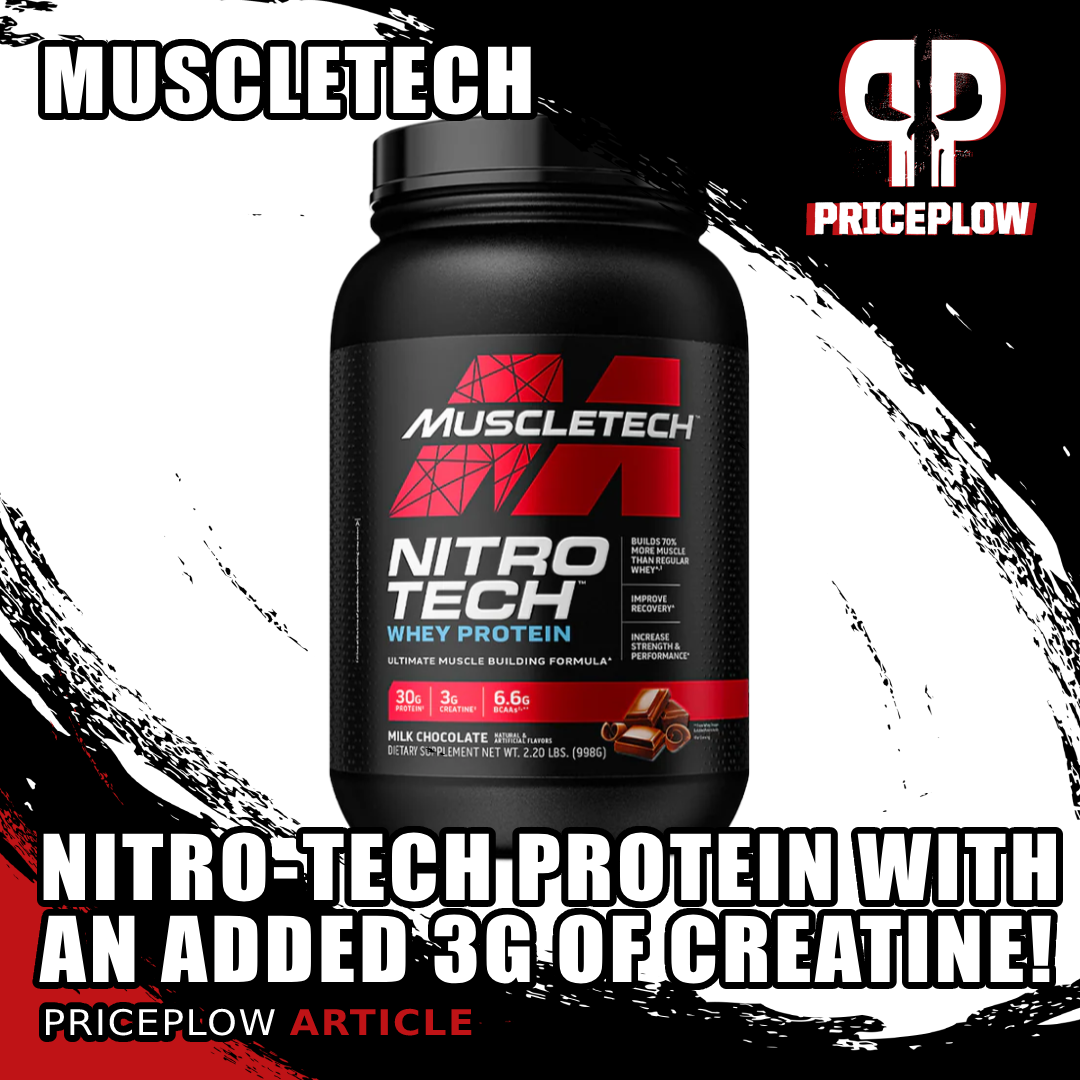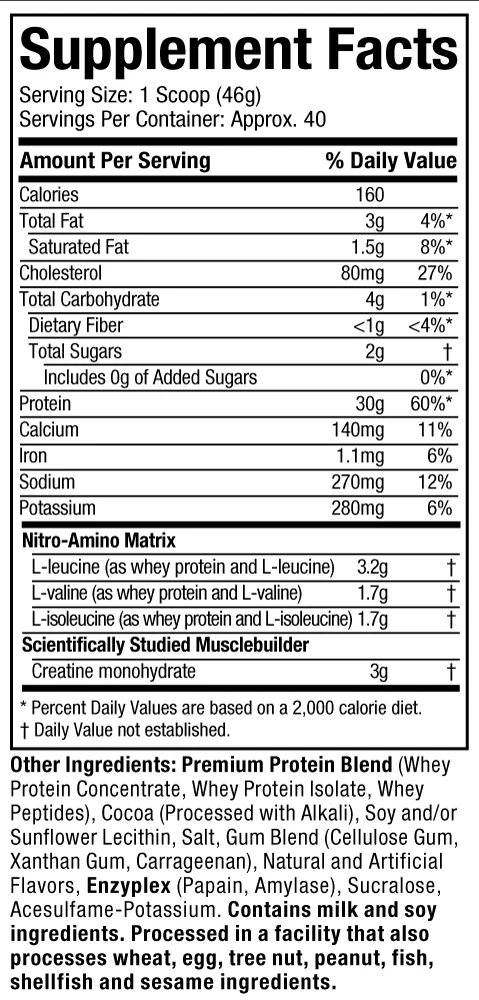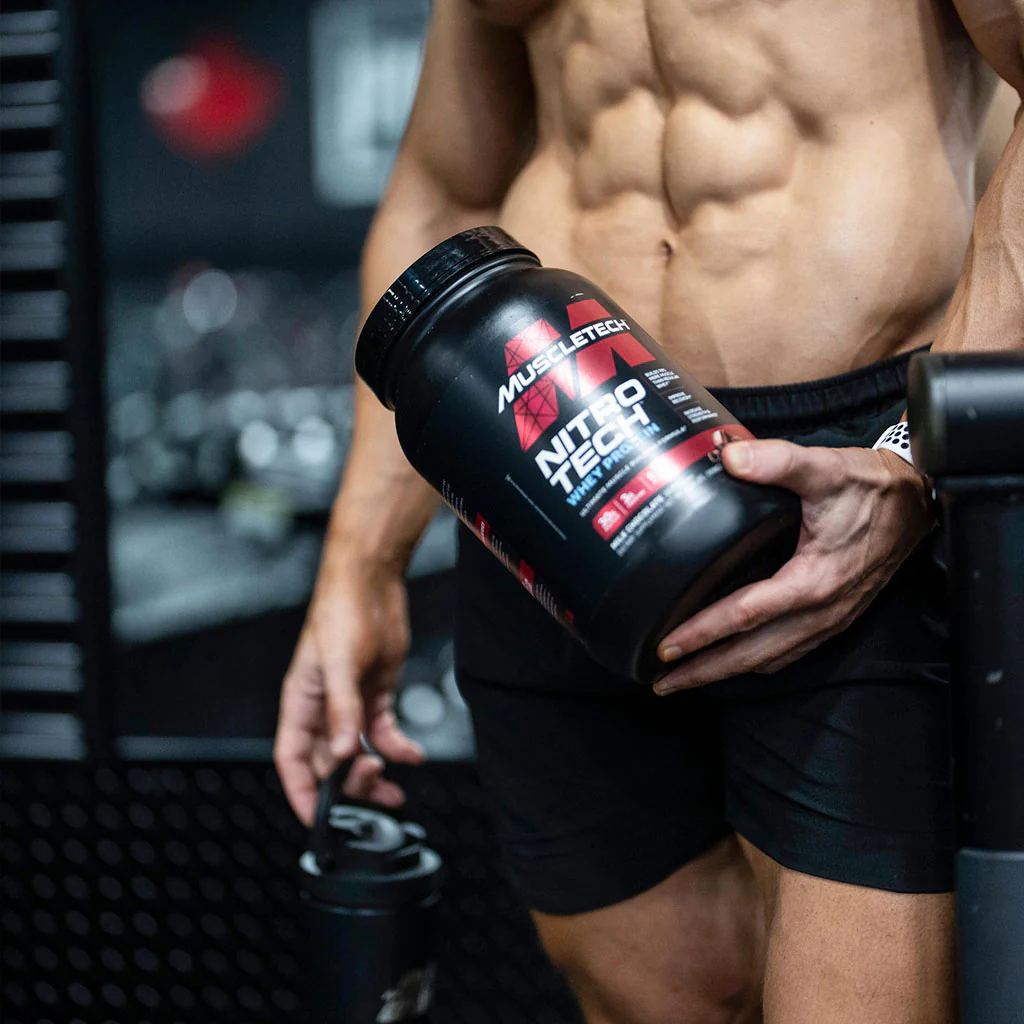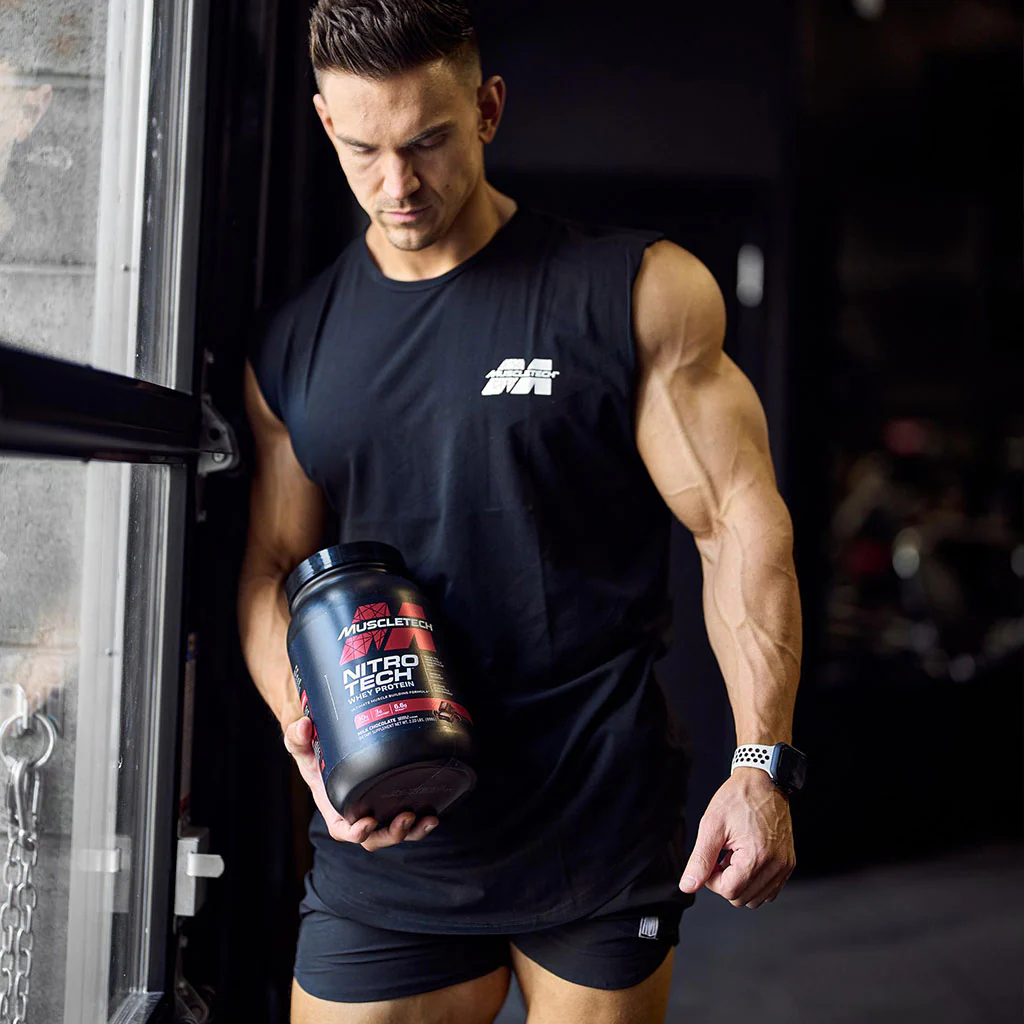MuscleTech's recent claim to fame has been some truly innovative products like Burn iQ, which tread the line between nootropic and fat burner. Earlier this month, MuscleTech released another novel product called Alpha Test Thermo XTR, which meshed testosterone boosting ingredients with fat burning ingredients.
The rest of MuscleTech's catalog displays this same level of inspiration – even the protein powders. The brand has a lot of protein options, but one of the best is Nitro-Tech.
The OG Nitro-Tech
Not all protein powders are created equal, and it's important to whey the many, many options on the market when choosing a supplement you'll be using so frequently. Muscle-Tech has an impressive array of options, but one of their most well-known formulas is the original Nitro-Tech.
Nitro-Tech incorporates three different forms of whey protein – whey protein concentrate, whey protein isolate, and whey peptides. Each has its own advantages, and together, they form a powerful complex boasting 30 grams of protein per serving, which is higher than the standard 25 grams from other powders.
Moreover, Nitro-Tech contains creatine, decreasing the need to buy a separate product. Creatine has a huge amount of research backing its effectiveness when it comes to both physical and mental performance.
We're going to dive into how Nitro-Tech works, but first, let's check PricePlow for good MuscleTech deals, and check out our video review of the product:
MuscleTech Nitro-Tech Whey Protein – Deals and Price Drop Alerts
Get Price Alerts
No spam, no scams.
Disclosure: PricePlow relies on pricing from stores with which we have a business relationship. We work hard to keep pricing current, but you may find a better offer.
Posts are sponsored in part by the retailers and/or brands listed on this page.
MuscleTech Nitro-Tech – Supplement Facts
Each 46g scoop of Nitro-Tech contains the following macros:
-
Calories: 160
-
Total Fat: 3g
-
Saturated Fat: 1.5g
-
-
Total Carbohydrate: 4g
-
Dietary Fiber: <1g
-
Total Sugars: 2g
-
-
Protein: 30g
MuscleTech Nitro-Tech – Ingredients
-
Premium Protein Blend
Whey protein is renowned for its high bioavailability and comprehensive nutritional profile, making it a popular choice among athletes and fitness enthusiasts for muscle recovery and strength building.[1-4] Whey is a complete protein, containing all nine essential amino acids necessary for human health.[5]
Nitro-Tech contains whey protein concentrate (WPC), whey protein isolate (WPI), and whey peptides. WPC contains 34-80% protein by weight and includes beneficial components like lactoglobulins, immunoglobulins, and lactoferrin,[6,7] which support the immune system and overall health. In contrast, WPI is more refined, containing at least 90% protein. This higher purity makes WPI ideal for those looking to precisely manage their macronutrient intake without excess carbs or fats.
Whey peptides represent a more advanced form of whey protein, consisting of smaller chains of amino acids that are more easily digested and absorbed.[8] This form targets specific physiological processes, enhancing the protein's bioavailability and optimizing body repair and function.
-
Nitro-Amino Matrix
The Nitro-Amino Matrix is composed of the branched-chain amino acids leucine (3.2g), valine (1.7g), and isoleucine (1.7g). BCAAs have been shown to stimulate muscle protein synthesis, delay the onset of soreness, and speed up recovery time.[9,10]
-
Creatine Monohydrate (3g)
Creatine is crucial for enhancing cellular energy by increasing adenosine triphosphate (ATP),[11-14] the primary energy currency of cells. Supplementing with creatine is beneficial because it reduces the metabolic cost of producing creatine naturally[15] and helps maintain optimal ATP levels, which are essential for health.
Research, supported by numerous studies and meta-analyses, highlights several benefits of creatine supplementation, including increased power,[16,17] facilitated weight and lean mass gain,[17-21] improved sprinting performance[22-24] and hydration,[25] reduced fatigue,[26-29] and more.
-
Additional Ingredients
For some additional digestive support, MuscleTech has included Enzyplex, which is an enzymatic ingredient containing papain and amylase. For flavor and texture, Nitro-Tech has a gum blend (cellulose gum, xanthan gum, and carrageenan), natural and artificial flavors, sucralose, and acesulfame-potassium..
All MuscleTech Nitro-Tech flavors
Check out our up-to-date list of Nitro-Tech flavors below:
The Basics
Whenever a new athlete starts to look at supplements, the standard recommendation is to start with a good protein powder and creatine. Nitro-Tech is both. Using a complex of whey protein along with a nice dose of creatine, you have the building blocks for a basic but effective supplement regimen, which you'll certainly notice in the gym.
MuscleTech Nitro-Tech Whey Protein – Deals and Price Drop Alerts
Get Price Alerts
No spam, no scams.
Disclosure: PricePlow relies on pricing from stores with which we have a business relationship. We work hard to keep pricing current, but you may find a better offer.
Posts are sponsored in part by the retailers and/or brands listed on this page.






Comments and Discussion (Powered by the PricePlow Forum)